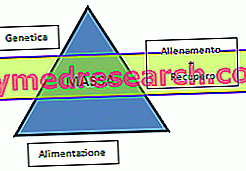
What is Extavia?
Extavia is a powder and solvent for solution for injection. Contains 250 micrograms (8 million international units, MUI) per milliliter of active ingredient interferon beta-1b.
The medicine is similar to Betaferon, already authorized in the European Union (EU). The company that produces Betaferon considered that the scientific data related to it could also be used for Extavia.
What is Extavia used for?
Extavia is used in the treatment of adult patients with multiple sclerosis (MS). Multiple sclerosis is an inflammatory disease that affects the central nervous system and manifests itself with the destruction of the protective sheath that covers the nerve cells. This process is called "demyelination".
Extavia is indicated for the treatment of:
• patients who have experienced signs of multiple sclerosis ('demyelinating event') for the first time and in whom these signs are severe enough to justify treatment with corticosteroids (anti-inflammatory medicines). The medicine is prescribed when the patient is considered to be at high risk of getting multiple sclerosis. Before prescribing it, your doctor must rule out other causes of the symptoms.
• patients with multiple sclerosis of the type known as "relapsing-remitting", characterized by attacks (relapses) alternating with periods without symptoms (remissions), in patients with at least two relapses over the last two years;
• patients with secondary progressive multiple sclerosis (the type of MS that develops after relapsing-remitting multiple sclerosis), with active disease.
The medicine can only be obtained with a prescription.
How is Extavia used?
Extavia therapy should be started by a doctor who has experience in the treatment of multiple sclerosis. It is recommended to start with 62.5 micrograms (one quarter of the dose) every other day and slowly increase the quantity over 19 days to reach the recommended dose of 250 micrograms (8 MIU) given each day. Extavia is given by subcutaneous injection (under the skin). The patient can inject himself the medicine after receiving appropriate instructions. Extavia treatment should be discontinued if the patient does not respond to therapy.
How does Extavia work?
The active substance in Extavia, interferon beta-1b, belongs to the group of "interferons". Interferons are natural substances produced by the body to help it cope with attacks such as viral infections. The mechanism of action of Extavia in the treatment of multiple sclerosis is not yet known, however it seems that interferon beta is able to regulate the immune system (the body's natural defenses) and thus prevent the recurrence of the disease. Interferon beta-1b is produced by a method known as "recombinant DNA technique": that is, it is obtained from a bacterium in which a gene (DNA) has been inserted which makes it capable of producing interferon. Analogous interferon beta-1b acts in the same way as natural beta interferon.
What studies have been carried out on Extavia?
Extavia was studied over 2 years on 338 patients with relapsing-remitting multiple sclerosis able to walk without assistance, comparing their efficacy to that of a placebo (a dummy treatment). The main measure of effectiveness in this study was reduction in the number of relapses.
Extavia was also analyzed in 1, 657 patients over two studies conducted on subjects with secondary progressive multiple sclerosis capable of walking; in these studies the medicine was compared with a placebo. The main measure of effectiveness was the delay in the progression of disability.
The study of Extavia in patients with a single demyelinating event involved 487 patients, who were treated with Extavia or placebo for two years. The study measured the time interval before the appearance of the clinically defined form of multiple sclerosis.
What benefit has Extavia shown during the studies?
In patients with relapsing-remitting multiple sclerosis, Extavia was more effective than placebo in reducing the number of relapses: patients treated with the medicine had an average of 0.84 recurrences per year, those treated with placebo 1.27.
In one of the two studies carried out in patients with secondary progressive multiple sclerosis, there was a significant delay in the progression of disability (31% risk reduction thanks to Extavia) and an extension of the time before the patient was forced to wheelchair use (39%). In the second study, no delay in disability progression was observed. In both studies, Extavia reported a reduction (30%) in the number of clinical relapses.
In the study of patients with a single demyelinating event, Extavia was shown to reduce the risk of clinically definite multiple sclerosis: 28% of patients treated with Extavia developed multiple sclerosis, compared with 45% of patients treated with placebo.
What is the risk associated with Extavia?
The most common side effects with Extavia (seen in more than 1 patient in 10) were: flu symptoms, fever, chills and reactions at the puncture site (pain and inflammation). For the full list of all side effects reported with Extavia, see the Package Leaflet. Extavia should not be used in patients with a history of hypersensitivity (allergy) to natural or recombinant interferon beta, to human albumin or to any of the other substances that make up the drug. Extavia treatment should not be started during pregnancy. Patients who begin pregnancy during therapy should consult their doctor. Furthermore, Extavia should not be taken by patients with severe depression and / or suicidal thoughts. Extavia is not indicated in patients with decompensated liver disease (in which the liver is unable to function normally).
Why has Extavia been approved?
The Committee for Medicinal Products for Human Use (CHMP) considered that the benefits of Extavia for the treatment of patients with a single demyelinating event, if this event is of such severity as to require treatment with intravenous corticosteroids, of patients affected by patients with relapsing-remitting multiple sclerosis and patients with secondary progressive multiple sclerosis with active disease. The CHMP therefore recommended that Extavia be given marketing authorization.
More information on Extavia:
On May 20, 2008, the European Commission granted a marketing authorization valid throughout the European Union for Extavia to Novartis Europharm Limited .
The full version of the EPAR for Extavia can be found here.
Last update of this summary: 4-2008



